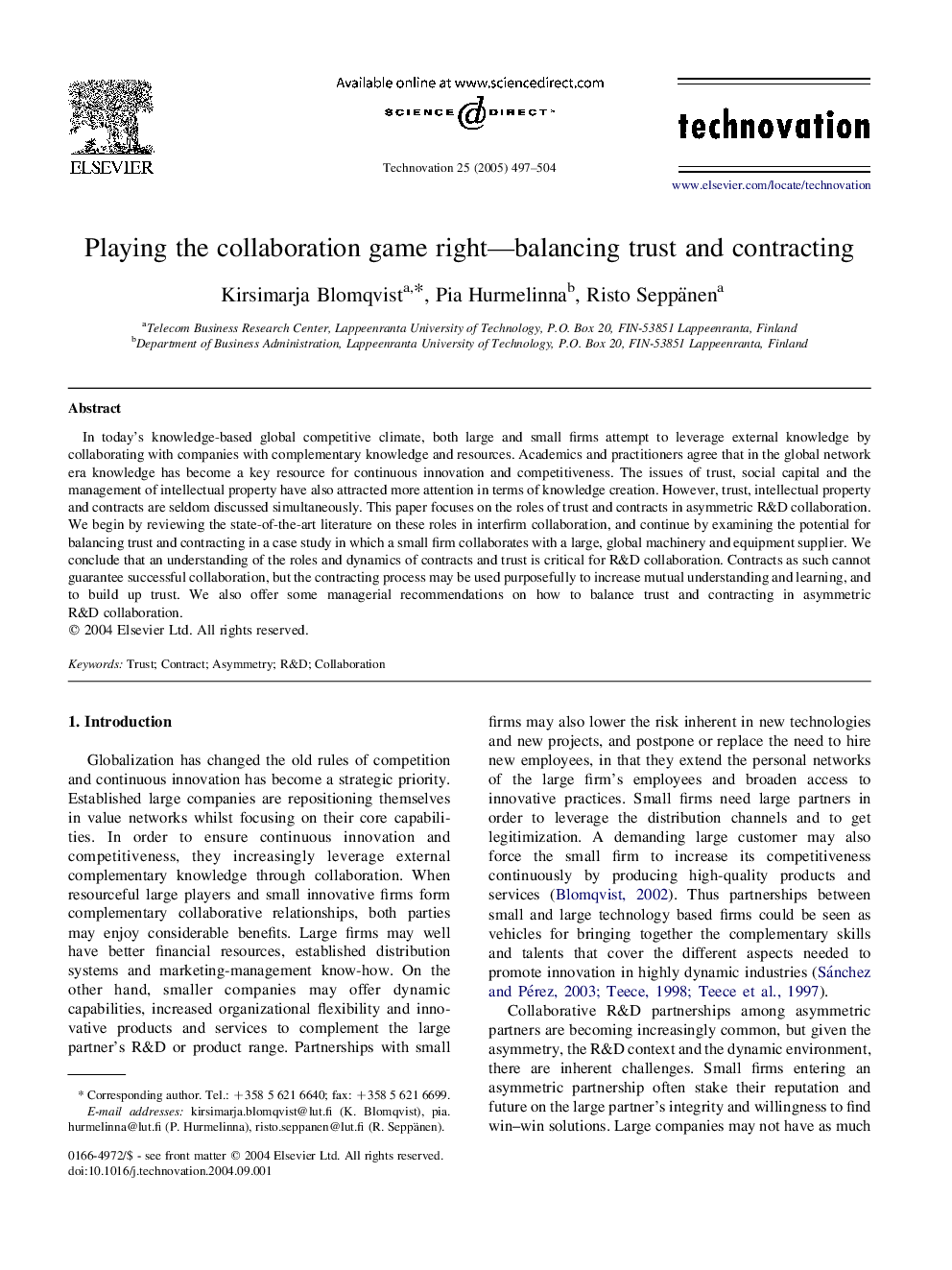| Article ID | Journal | Published Year | Pages | File Type |
|---|---|---|---|---|
| 10494953 | Technovation | 2005 | 8 Pages |
Abstract
In today's knowledge-based global competitive climate, both large and small firms attempt to leverage external knowledge by collaborating with companies with complementary knowledge and resources. Academics and practitioners agree that in the global network era knowledge has become a key resource for continuous innovation and competitiveness. The issues of trust, social capital and the management of intellectual property have also attracted more attention in terms of knowledge creation. However, trust, intellectual property and contracts are seldom discussed simultaneously. This paper focuses on the roles of trust and contracts in asymmetric R&D collaboration. We begin by reviewing the state-of-the-art literature on these roles in interfirm collaboration, and continue by examining the potential for balancing trust and contracting in a case study in which a small firm collaborates with a large, global machinery and equipment supplier. We conclude that an understanding of the roles and dynamics of contracts and trust is critical for R&D collaboration. Contracts as such cannot guarantee successful collaboration, but the contracting process may be used purposefully to increase mutual understanding and learning, and to build up trust. We also offer some managerial recommendations on how to balance trust and contracting in asymmetric R&D collaboration.
Related Topics
Social Sciences and Humanities
Business, Management and Accounting
Business and International Management
Authors
Kirsimarja Blomqvist, Pia Hurmelinna, Risto Seppänen,
